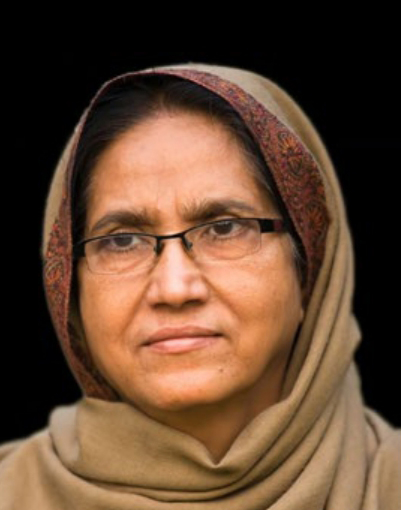FROM THE EDITOR-IN-CHIEF’S DESK

Prof Farida Khanam is an author, editor, translator, public speaker and former professor of Islamic Studies at Jamia Millia Islamia, New Delhi. Among her books are ‘A Simple Guide to Islam’ and ‘A Study of World’s Major Religions’. She has translated into English many books authored by Maulana Wahiduddin Khan. Currently the chairperson of CPS International, she is a regular contributor of articles to various publications. Prof Khanam has edited Maulana’s English translation of the Quran and has also translated his Urdu commentary on the Quran into English. She can be reached at [email protected]
NAVIGATING THE NEW YEAR WITH
PURPOSE AND WISDOM
IN accordance with the Common Era (CE) calendar, the commencement of a new year occurs on January 1st, and consequently, New Year’s Day is universally celebrated on this date across the world. The observance of New Year’s Day is marked by a collective hope that the forthcoming year will surpass its predecessor. However, this aspiration can be realized only by individuals who maintain a meticulous account of their actions and choices, as opposed to those who lead lives characterized by heedlessness.
Embedded within the natural order of things is the inexorable passage of time. According to the laws of nature, each new day succeeds the previous one, resulting in the inexorable deduction of days from the finite span of human life. For instance, January 1, 2024, follows December 31, 2023, and inevitably, January 1, 2024, will too evolve into a historical footnote. In this transient world, novelty succumbs to antiquity, and every circumstance ultimately transitions into the annals of the past. While the past cannot be resurrected, it does hold within it a treasury of experiences from which one can glean invaluable wisdom. This immutable principle is ingrained in the very fabric of existence.
In light of this, it is incumbent upon every individual to engage in introspection as a primary duty. A truly successful person is one who conducts a continuous self-evaluation, taking stock of what was gained and lost in the preceding year. This introspective exercise serves as a foundation for crafting a more refined and strategic plan for the approaching year. It is crucial to emphasize that this self-accounting is a deeply personal endeavour, and while guidance and counsel from others may be sought, the actual process of self-appraisal cannot be outsourced.
A valuable tool in this endeavour is the practice of maintaining a diary. Maulana Wahiduddin Khan advocated the use of diaries as a means to cultivate intellectual skills. A diary, in essence, serves as a repository of an individual’s lived experiences. When one commits to documenting their life journey in a diary, it transforms into a guidebook for their intellectual and emotional evolution, grounded in the light of past encounters and reflections.
The celebration of New Year’s Day symbolizes hope and renewal. Yet, the fulfillment of this aspiration hinges on a person’s capacity for self-assessment and learning from the past. A diary, as suggested by Maulana Wahiduddin Khan, can serve as a valuable instrument in this pursuit, aiding in the development of intellectual faculties and fostering a deeper understanding of one’s own journey in the context of life’s ever-turning wheel. As we approach the dawn of each new year, it is this deliberate reflection and self- accounting that empowers individuals to navigate the path ahead with greater clarity and purpose.





